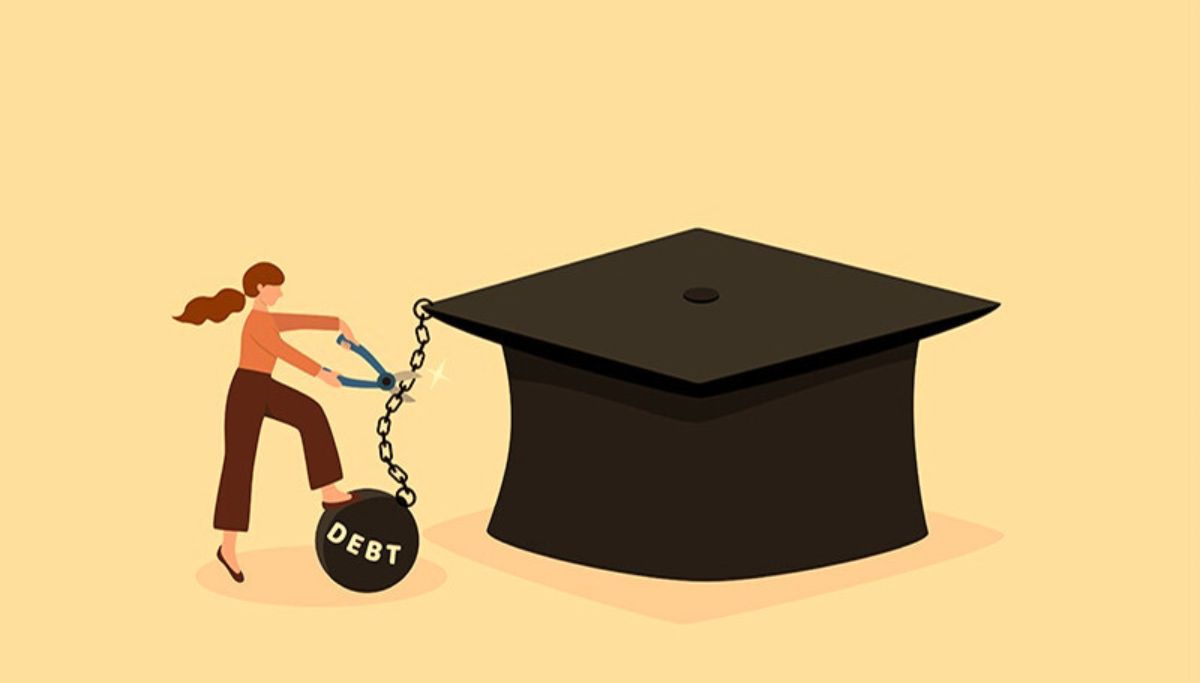Table of Contents
Everyone with even a small bit of debt has to find the means of handling their debt. You need to ensure that your seemingly little debt doesn’t snowball into a massive financial burden that could derail your life. This is why dealing with debt is as important for young students as it is for adults. It’s imperative to make sure your debt doesn’t get out of hand. On the other hand, if you’ve accumulated a huge amount of debt, it is important to know the tips for dealing with debt, which will be explained later on in this blog. So, if you’re ready to live that “debt-free life”, let’s take a look at some of the best and most effective tips for dealing with debt.

Understand How Much You Owe | Tips For Dealing With Debt
It’s crucial that you understand the magnitude of debt you’re in. This is possible only if you thoroughly go through all the documentation related to your loans. Try to create a record of your loans, replete with names of the providers, overall loan numbers, regular payment schedules, interest rates, and due dates. To check the debts on your list, you may make use of your credit report. Getting all the loans in front of you would help you to see the bigger picture and be mindful of the enormity of your debt. Don’t just build and forget about your loan history. Regularly refer to the debt list, especially when you pay bills. When you find that the overall sum of your debt increases, refresh the list every few months. This is one of the main tricks to effectively dealing with debt.
Make At Least The Minimum Payment
One of our useful tips for dealing with debt is to make at least the minimum payment. If you can’t pay the entirety of your debt amount, at least make the minimum payment that the bank asks of you. The minimum payment, of course, would not help you make real strides in paying off the loan, however, it maintains your credit score in good standing. If you keep missing on payments, your balances will not only go into default but also adversely affect your credit score. This will act as a deterrent to getting loans in the future.
Negotiate Lower Rates | Tips For Dealing With Debt
If you’re finding problems with dealing with debt, try negotiating for lower rates with your bank. Though it is difficult to do so, try your best to prove that you are not in a position to pay off the entire debt amount. By negotiating lower rates, you are minimising the cost of getting out of debt and making it easier to get to zero faster.
Using A Monthly Budget ToPlan Expenses
Holding a budget tends to ensure that you have ample funds to meet your monthly expenditures. Prepare your budget long in advance if you feel like you won’t have enough cash this month or the next. After costs are met, a budget still lets you prepare to invest whatever leftover funds you have left. This additional income can be used to pay off the loan quicker. This is one of the most useful ways of dealing with debt.
Decide Which Debts You Want To Pay Off First
Another one of the best tips for dealing with debt is to decide which debt to conquer first. As credit cards carry higher interest rates than other loans, paying down credit card debt first is often the safest option. So if you have a lot of credit card debt, it makes sense to repay the one with the highest interest rate since it costs the most money. In order to prioritise and rate your debts in the order, you intend to pay them off, use your debt chart. You may even choose to use an alternative approach where you pay down the mortgage first with the lowest balance. Closely study the different debt repayment methods and determine which one serves you the best.
Pay Your Bills On Time
This one’s a fairly straightforward tip to understand. If you want to be successful in dealing with debt then you need to try your best to pay your bills on time. Failure to do so would result in a late fee and, moreover, late payments make it more complicated to pay off your debt. Your interest rate and financing costs would escalate if you skip two payments in a row. If your device or tablet uses a calendar system, input your payments and schedule an alarm to notify you a few days before your payment is due. If you miss a payment, do not hesitate to give the payment later on or else, it will be recorded to the credit bureau. Make sure you pay your payments, as soon as you know it was skipped.
Cut Back On Discretionary Expenses

Try to improve your cash flow by cutting down on unnecessary expenditure. Remember, debt reduction and balance transfer payoffs are more effective with more cash in the bank. Here are some ways you can reduce your recurring expenditures –
- Minimise streaming entertainment accounts (Netflix, TV, music, gaming)
- Cancel or suspend services that you can do yourself (landscaping, pool care, house cleaning)
- Reduce the number of times you dine out. Prepare your own meals at home.
- Cancel your gym membership and work out at home.
Cutting back on expenses is one of the best ways of dealing with debt.
Take Care Of The Other Accounts
It’s true that you can pay as much of your debt as you can afford. When you’re in a situation where you have limited funds, focus on keeping your other accounts healthy. Do not jeopardise your positive accounts for those that have already affected your credit. Instead, pay those past due accounts when you can afford to do it. Be mindful that once you get the account current again, your creditors can resume collection efforts on the account.
Payment Calendar for Monthly Bill
To help you find out which payments to cover from which salary, use a bill payment schedule. Generally, you write the payment sum of each bill next to the due date but instead, fill in each paycheck’s date. You will use the same calendar from month to month as you get paid on the same day every month. But, if your paychecks come on various days of the month, you’ll need to create a calendar every month.
Using A Fund for Emergencies
You will have to go into debt if you don’t have access to savings. This is why one of the best ways of dealing with debt is by creating and maintaining an emergency fund. Tiny costs that crop along every once in a while can be protected by such a modest emergency fund. Next, work on developing a tiny emergency fund that would be a strong starting point. Make it your aim to build a bigger fund if you have the means to do that. Eventually, you want to set up a living cost reserve that will last you a good three to six months.
Seek Support | Tips For Dealing With Debt
Don’t be afraid to get assistance from a debt management organisation, such as a credit counselling service, if you find it challenging to pay your debt and other bills each month. Alternative options for debt relief are Debt consolidation, Debt settlement and Bankruptcy. All these options have their own pros and cons, so choose carefully.
The Risks Of Ignoring Debt Accumulation

Unsure of which loans to get? Get a FREE consultation by filling the form in this blog!
Accumulation of debt can be a dangerous thing if you didn’t already know it. This is why it is so essential to incorporate the aforementioned tips on dealing with debt into your life. If not, you risk running into the following pitfalls –
- A badly affected credit score – By ignoring your debt collectors and not paying off the debt, your credit score will get negatively impacted. Debt collectors report delinquent accounts to the credit bureaus, a move that will hurt your credit score for several months – if not years. This decreases the possibility of getting loans in the future.
- Debt ballooning up – Even though this is fairly obvious, we thought we should mention it because of how serious this problem is. By not paying your debt in time, you are accumulating unnecessary additional interest and collections costs onto your existing debt. A good way to reduce your debt is by responding to initial calls or letters from your creditors.
- You could get sued – Every creditor operates differently. One of the most extreme measures your creditors can take is suing you for not paying your debt. The court may order wage garnishment, in which a portion of your paycheck is withheld to pay off your debt. The collections agency may also go after the funds in your bank account. Use our tips on dealing with debt to prevent getting sued.
If you liked reading this blog on “Tips for dealing with debt” then make sure you check out our other informative blogs linked below!
If you liked reading this blog, then make sure you check out our other informative blogs linked below!










0 Comments